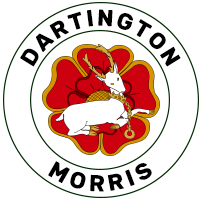Robin: Tell us a bit more about John O'Gaunt. What was he doing in Spain ?
Foreman: You need to know a little bit about the Hundred Year's War to understand what was going on at that time and what the heck John of Gaunt was up to in Northern Spain.
Basically, the Kingdom of France was going through a bit of a difficult time (understatement of the 14th Century, that one) and the other countries in Western Europe were seeking to profit by their weakness by carving off chunks of territory for themselves.
France was a bit like a big fat cow surrounded by a pack of hungry dogs taking great bites out of it. Some of the hungriest dogs in the pack were actually French cross bred themselves, and your most ravenous French dog was from the impoverished region of Gascony in South West France. Maybe the Gascons considered themselves to be Basque really and so they considered France to be a foreign country and therefore fair game for a bit of depradation. More likely, they just wanted the money.
The Gascons were certainly frequent allies of the English at that time. They were more or less under English rule at this point in history, as Edward III held extensive lands in Aquitaine. Froissart the famous 14th Century chronicler tells us that when he made a criticism of a certain Gascon at the French court about his rapacious behaviour (not to his face) another Gascon came in with the approving remark "Yes, just like a Gascon, always seeking to gain from another's misfortune."
It wasn't just the Gascons, though. Adventurers from all over Europe were kitting themselves out, forming war bands and setting off for France to see what they might gain by plunder, ransom, levies and plain extortion. The other force who had a bearing on proceedings was King Charles of Navarre. He was a great recruiter of war bands and political schemer and a constant hatcher of Machiavellian schemes.
The poor old common French peasants had to put up with gangs of armed men (known as "routiers" a "route" meaning a gang) invading their district and setting up various forms of protection rackets. Some of these guys were real dare devils. They used big ladders to scale castle walls by night to oust the sitting garrison and take over a fortified town or strategic local fortress. They then levied taxes on the district (known as pastis) and made money by selling safe conducts to merchants, stealing the church reliques and selling them back when the clergy could raise the money and generally practising extortion with loads of other Mafia type practices.
Yes, they were real dare-devils, these guys, but the locals thought they were sheer devils.
Kings such as Edward III of England were invading whole provinces and basically doing the same thing on a larger scale, using an accumulation of war bands to form their armies.
Terry Gilliam of "Monty Python" fame wrote a good book about the knights of this period called "Chaucer's Knight". I recommend it as a bit of lively history and detection. I think he mentions the Scrope-Grosvenor trial, which was a dispute about the right to bear a certain coat of arms. Geoffrey Chaucer gave evidence at that trial. Whatever might be the rights and wrongs of who wore what heraldry first, the really amazing thing which emerges from the trial records was that some of these guys had been in scores of battles all over Europe. What's more, they were still at it at the age of sixty or more!
We usually think of a medieval battle as a show down with loads of hacked off limbs and slaughtered bodies about. Well, some of them were, as you can tell by the burial pits (such as the one at Towton, they had a programme about that on the television set) but lots of others must have been a bit of push and shove, fire off your arrows, see if you can capture some noble for ransom and then back off to fight another day if you thought that things weren't shaping up too well. The list of battles all over Europe which Chaucer's Knight fought in was not really an exaggeration for some of these war veterans.
If you read Froissart you will realise that the capture of a nobleman meant big money to the routiers, or indeed to the kings and barons, because if you held him captive you could get all the money from his estates in ransom fees.
